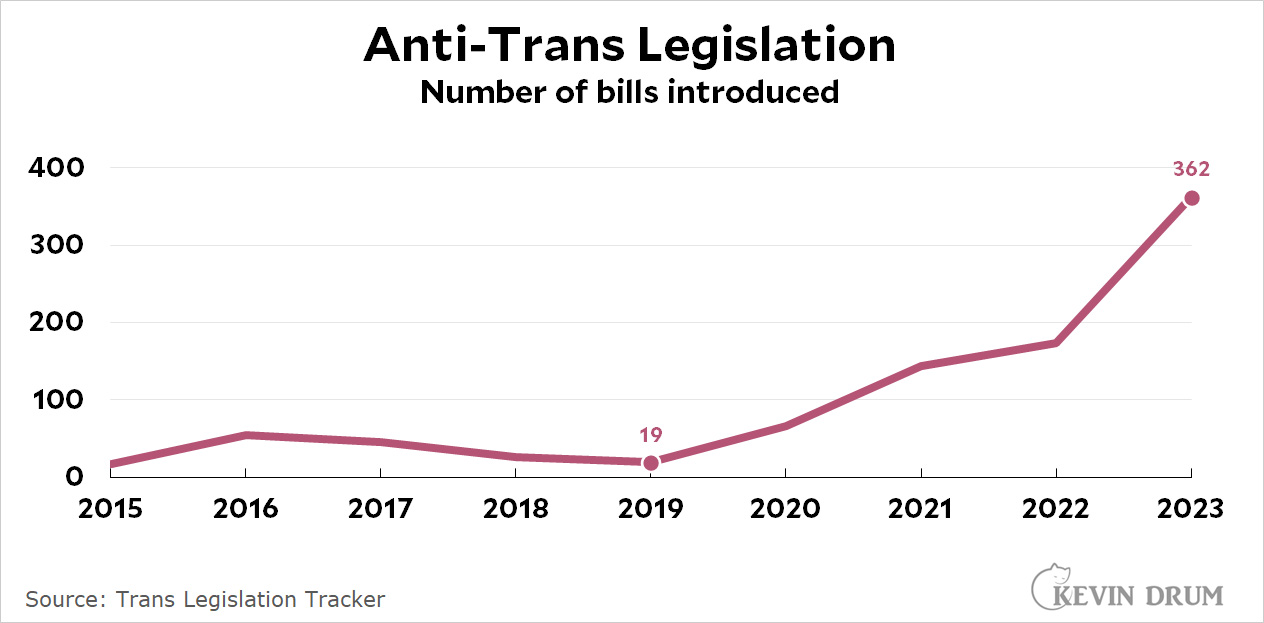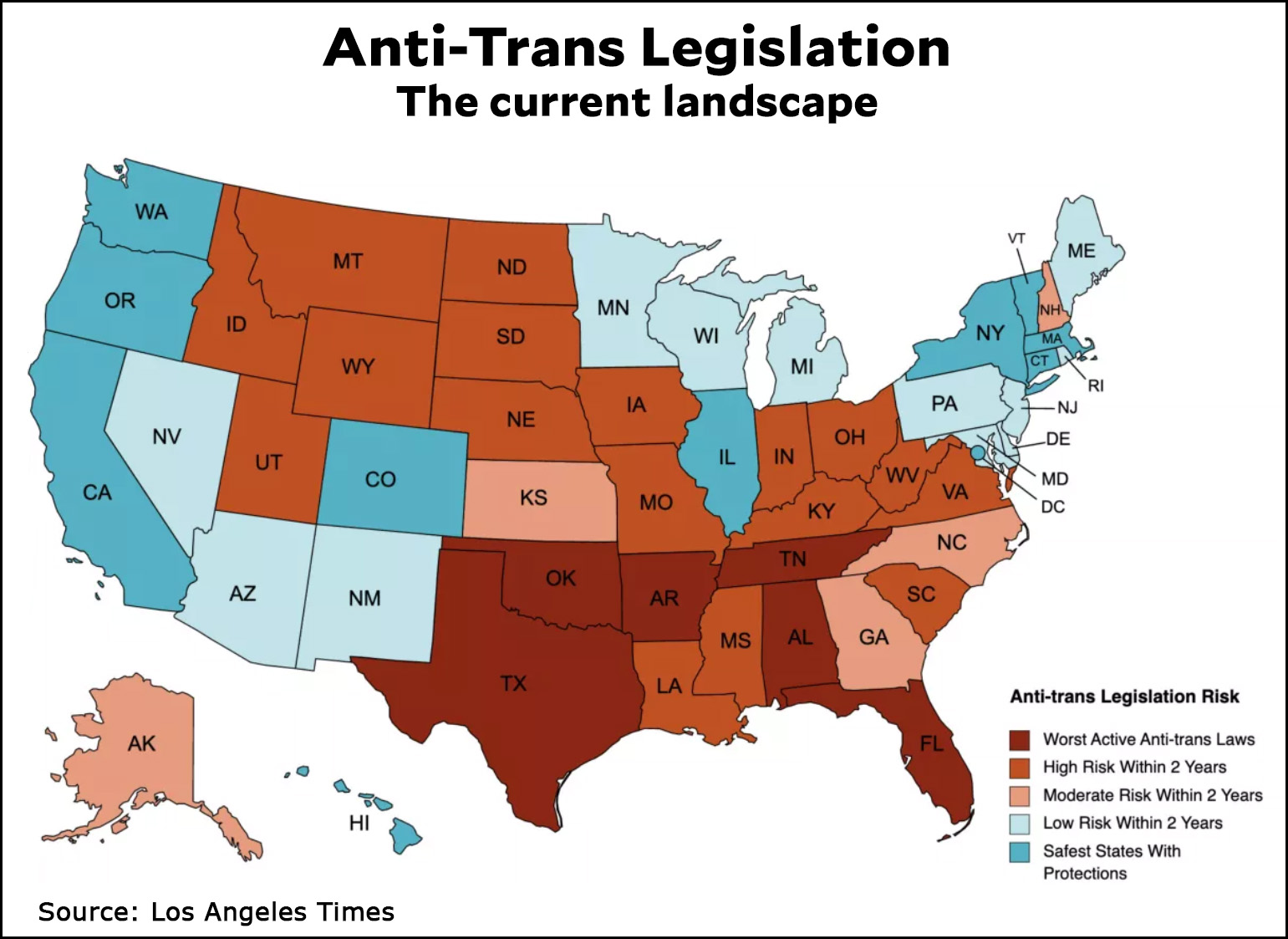According to Trans Legislation Tracker, there are currently more than 300 bills pending in state legislatures that attack transgender health and well-being in one way or another. Some are directed at trans girls in high school sports. Some are directed at K-12 curricula. Some are directed at banning or regulating gender-affirming care among trans children and teens.
In just the past four years, the number of anti-trans bills introduced annually has skyrocketed by nearly 20x:
 Anti-trans legislation has spread to a majority of US states:
Anti-trans legislation has spread to a majority of US states:
 This is the background for everything happening on the transgender front these days. Conservatives have mounted a vast and brutal attack on transgender people, and the size (and viciousness) of the attack is growing every year.
This is the background for everything happening on the transgender front these days. Conservatives have mounted a vast and brutal attack on transgender people, and the size (and viciousness) of the attack is growing every year.
This has, unfortunately, produced a calamitous wedge issue among progressives. The question is how the medical establishment should treat gender dysphoric children and teens, and as you'd expect the research on this topic is (a) thin and (b) unsettled. What else could it be? It's both a difficult issue and a fairly recent one. It simply hasn't been around long enough to generate a well-accepted corpus of rigorous research that follows transitioning kids all the way into adulthood. Recent evidence hints that there may be some problems with current standards of care, but we don't know for sure.
So what do we do while we wait for more research? Given the ongoing assault on trans lives from conservatives, trans activists would basically like everyone to shut up. Maybe there are issues with currently popular treatments, but debating them in public does nothing but provide conservatives with political ammunition—usually twisted and willfully misinterpreted in service of their cause.
Non-activists don't accept this. As with most things, they believe that transparency and public debate are the best way to eventually establish best practices. Trying to hide the facts is both unlikely to succeed and bad for everyone in the long run.
The leadership of the trans community has long had a reputation for ruthlessness against heretics, and that plays into the ongoing war over how to discuss all this. Activists attack the non-activists with absolutely no holds barred: they are murderers, liars, zealots, and pawns of the right. Non-activists hit back with charges that the trans community has no interest in the truth.
The worst part of all this is that, as near as I can tell, both sides in this progressive civil war really and truly believe they have the best interests of the trans community at heart. But the war has long since reached such a fever pitch that everyone on every side probably thinks I'm being laughably naive here.
And me? I'm nearly always on the side of honest research being publicly debated. There are downsides to this—namely that partisans will often distort it for their own ends—but the downside of getting into the habit of suppressing honest research is far worse. At the same time, a topic that touches on raw emotions and life experiences as harrowingly as this one should be debated with extraordinary care and sensitivity to the harm it can produce. Facts and statistics are all very fine if you're literally presenting at a conference of fellow professionals, but outside that milieu it's not enough.¹ You need to make it crystal clear whose side you're on.
I'm on the side of trans people. I'm also on the side of (trying to) ferret out the truth—precisely because this is almost certainly best for everyone, both cis and trans, in the long run. These days, I'm not sure where that puts me.
¹Yes, I realize I'm hardly one to talk.






